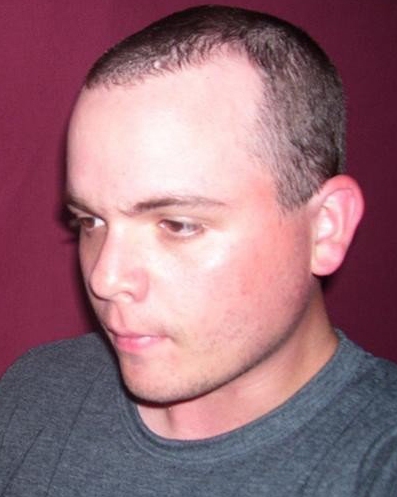By Jacob Budd
 I want to make it clear that I do not hold ill will toward the United States Army, or any branch of the military for that matter. I enjoy being a part of something larger than myself, and hopefully having the opportunity to make a difference. I have never regretted my decision to enlist, or to start my commissioning program in the Army National Guard. That being said, any organization a person can be a part of may reflect ideals that are contradictory to one's own values. The military is no different.
I want to make it clear that I do not hold ill will toward the United States Army, or any branch of the military for that matter. I enjoy being a part of something larger than myself, and hopefully having the opportunity to make a difference. I have never regretted my decision to enlist, or to start my commissioning program in the Army National Guard. That being said, any organization a person can be a part of may reflect ideals that are contradictory to one's own values. The military is no different.
 I want to make it clear that I do not hold ill will toward the United States Army, or any branch of the military for that matter. I enjoy being a part of something larger than myself, and hopefully having the opportunity to make a difference. I have never regretted my decision to enlist, or to start my commissioning program in the Army National Guard. That being said, any organization a person can be a part of may reflect ideals that are contradictory to one's own values. The military is no different.
I want to make it clear that I do not hold ill will toward the United States Army, or any branch of the military for that matter. I enjoy being a part of something larger than myself, and hopefully having the opportunity to make a difference. I have never regretted my decision to enlist, or to start my commissioning program in the Army National Guard. That being said, any organization a person can be a part of may reflect ideals that are contradictory to one's own values. The military is no different.
The military claims its Chaplains are a means of spiritual support for its soldiers. I am certain there are non-Christian chaplains somewhere in the military, but in my experience, I have never met nor heard of one. The chaplains are mostly well-meaning, personally delightful people. When I first felt negatively about the program was during a process the Army calls SRP (Soldier Readiness Processing) which is a series of legal, medical, administrative stations a soldier must attend occasionally in the military. One of the stations was a chaplain (Christian, of course) which was an absolute requirement. Why not have a mental health professional?
The chaplains always introduce themselves as Christian, yet they are not there to spread Christianity, and anyone of any faith can receive spiritual guidance from them. But if I were a Buddhist, I would not benefit from a Baptist giving me his philosophy which by nature contradicts my sutra-ethical background. The chaplains often have free reading material which is displayed and available for anyone interested. I have never seen reading material presented by them of any faith outside of Christianity. Clearly the “spiritual guidance” is lip service.
At one of the military schools I attended, the entire company was required to attend church. We were told we would march to a Catholic Church service, and our attendance was mandatory. If you truly were offended by having to go, the commander may or may not grant you to stay behind. “Staying behind” meant punishment, in the form of cleaning detail, or possibly even extra physical training.
One of the most bothersome experiences is an online test I was required to take which asks a series of questions about your mental state. Simply put, it is a multiple choice test which determines your stability for deployment. I am sure it is by no means the absolute standard of the Army's mental testing. It is however mandatory and used as a tool to grade you on paper. One of the categories is "Spiritual Strength." I scored impressively low in that category. According to that test, I am a low scorer for mental stability based on the fact I do not believe in a god or an after-life. I have no way of knowing if the test is considered valid in determining the progress of my career, but the fact that it exists concerns me.
It is very hard for me to deny that the US Army wants its members to not only be religious, but to be Christian, yet I had struggled to understand why. In a nation where we honor freedom, why does its backbone of power feel the need to push this particular belief? George W. Bush answered this question for me. His belief that the invasion of Iraq was a mission given to him by God revealed much. I do not claim Bush has started this God-craze in the Army, yet the belief surrounding his words says it all. Religion is used as a proxy to the Army's soldiers for acceptance to its policies overseas. This is a very simple answer, yet without this need, nearly every single oath in the Army (as it is currently written) is meaningless. To me the oath has meaning only if I choose to ignore the reference to God. If a military action is complicated, and ambiguous to the more “simple-minded” of those in the Army, then religion is used to help persuade them.
I really wish to be wrong about this, as I am very proud to serve my country, and will continue to serve with dignity and integrity.

